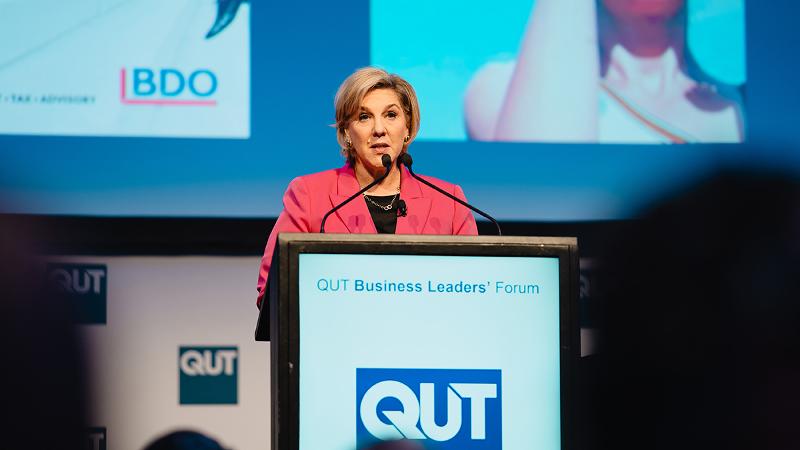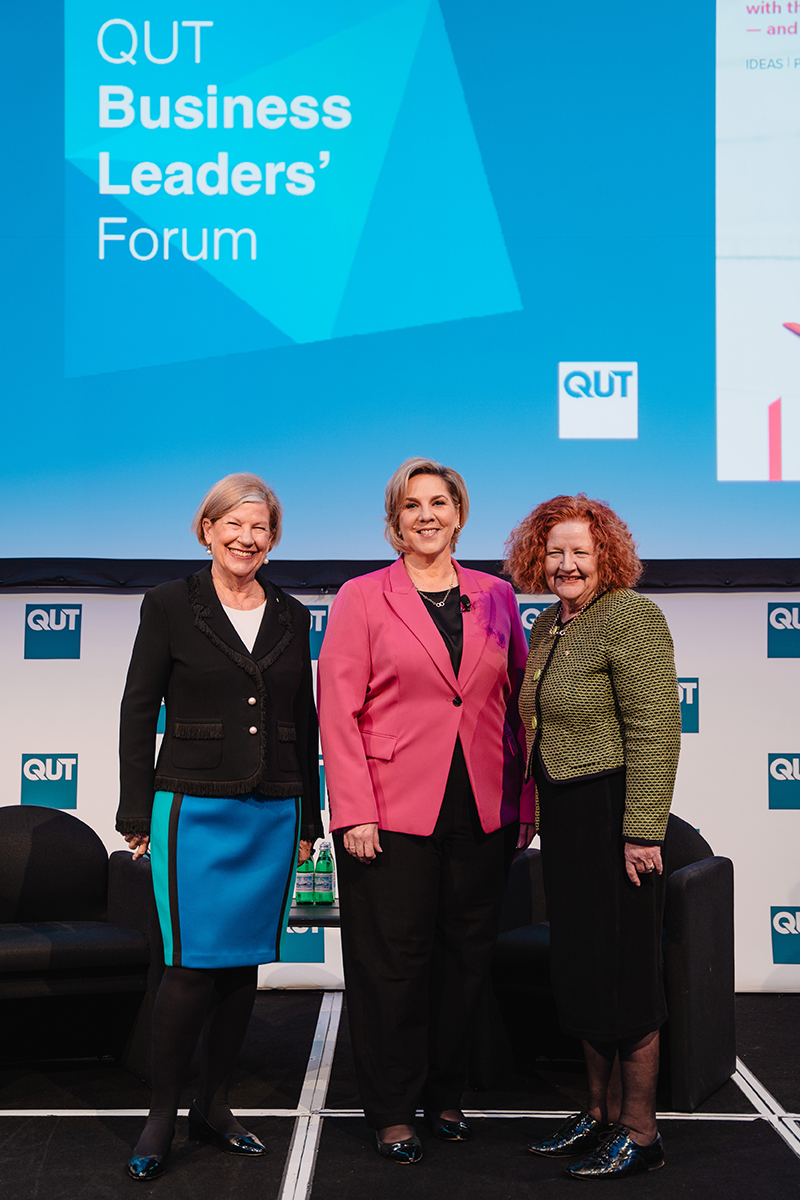
The emerging tech corridor in south-east Queensland and northern New South Wales could help drive the nation's economic future, Tesla Board Chair and Chair of the Tech Council of Australia Robyn Denholm said today.
At the QUT Business Leaders’ Forum, Ms Denholm said the region was offering a new way forward for the Australian economy, which had traditionally relied on selling primary produce and resources to the world.
“If we can dig it up, grow it, fatten it, herd it onto a boat or pack it in ice and ship it, then that’s what we do,” Ms Denholm said.
“But in the last two decades the world has changed.
“While mining and agriculture will always be a strong pillar for our economy…in order to compete on the global economic stage, our economy cannot afford to forever rely on the luck of our natural resources,” she said.

QUT Vice-Chancellor Professor Margaret Sheil AO
“If we do not act now to forge a new vision for what the Australian economy will look like in the next decade, our luck just may run out.”
Ms Denholm said many tech professionals had returned to Australia from overseas during the COVID pandemic, with many others migrating north from the nation’s traditional tech centres at this time.
“These days we have amazing world-beating companies born and bred right here in Queensland,” she said.
“Many people in Sydney and Melbourne are surprised – and perhaps a little indignant – when I tell them that south-east Queensland is a leading light in a vibrant start-up ecosystem in Australia.
“Today you don’t have to go overseas to get your R&D. It’s a great time to put ourselves on the map. Our engineers are really highly sought after in Silicon Valley.”
Ms Denholm said tough economic times were helping drive innovation for those who could be “forward-leaning around technology”.
“Every economic dislocation actually creates opportunities…I think it’s an amazing time to be starting a company.”
Ms Denholm said the technology sector was set to grow at a “blistering pace”, with the Tech Council of Australia setting a goal that by 2030, tech activity across all industries in Australia would contribute $250 billion a year to national GDP.
She said with the economy and workforce digitising across the board, Australia’s tech jobs had grown at double the average rate of jobs growth in the last decade.
“This past year alone we have seen an eight per cent increase in tech jobs, bringing the country’s current tech workforce to 935,000 as of February 2023,” she said.
She said schools, the higher education sector, families and businesses all had a role to play in encouraging students to consider a career in technology, with jobs in the tech sector attracting big salaries, second only to those of CEOs.
“The moral imperative is that getting a more diverse array of Australians into tech jobs will help lift wages, reduce the gender pay gap, and increase social mobility.”
“We need every student who is thinking about entering a university, like QUT, to be looking at STEM subjects and visualise a varied, exciting career,” she said.
Shayne Elliott, CEO of ANZ, will speak at the next QUT Business Leaders’ Forum on 29 August 2023.
For tickets or more information, visit: QUT Business Leaders’ Forum.
Media contact:
Sally Dillon, QUT Media, 07 3138 8666, s.dillon@qut.edu.au
After hours: media@qut.edu.au

